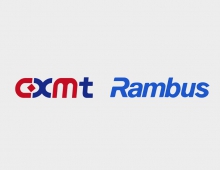
FTC Says Rambus Monopolized Memory Chip Market
The U.S. Federal Trade Commission ruled on Wednesday that computer technology developer Rambus unlawfully monopolized markets for four memory chip technologies.
The FTC said in a statement on its Web site that Rambus "through a course of deceptive
conduct" was able to distort industry standards for dynamic random access memory (DRAM)
and "engage in an anti-competitive 'hold-up' of the computer memory industry."
The FTC said it ordered more briefings to determine the appropriate remedy for Rambus's actions.
"We are disappointed that any form of liability was found on the records submitted to the FTC during and following our 2003 trial," John Danforth, senior legal at Rambus, told analysts on a conference call. "We believes it highly likely (that) we will be taking an appeal from the liability that has been found."
The company believes it can continue with its licensing activity and that it can proceed with existing litigation, including patent suits against Micron Technology and South Korea's Hynix Semiconductor .
The FTC brought antitrust charges against Rambus in June 2002, and a trial took place in 2003.
In 2004, a U.S. administrative law judge handed Rambus a legal victory by dismissing charges that it illegally monopolized key computer chip technologies. Later that year, the FTC staff asked the agency's five commissioners to overrule the judge's decision.
The FTC said it ordered more briefings to determine the appropriate remedy for Rambus's actions.
"We are disappointed that any form of liability was found on the records submitted to the FTC during and following our 2003 trial," John Danforth, senior legal at Rambus, told analysts on a conference call. "We believes it highly likely (that) we will be taking an appeal from the liability that has been found."
The company believes it can continue with its licensing activity and that it can proceed with existing litigation, including patent suits against Micron Technology and South Korea's Hynix Semiconductor .
The FTC brought antitrust charges against Rambus in June 2002, and a trial took place in 2003.
In 2004, a U.S. administrative law judge handed Rambus a legal victory by dismissing charges that it illegally monopolized key computer chip technologies. Later that year, the FTC staff asked the agency's five commissioners to overrule the judge's decision.




















